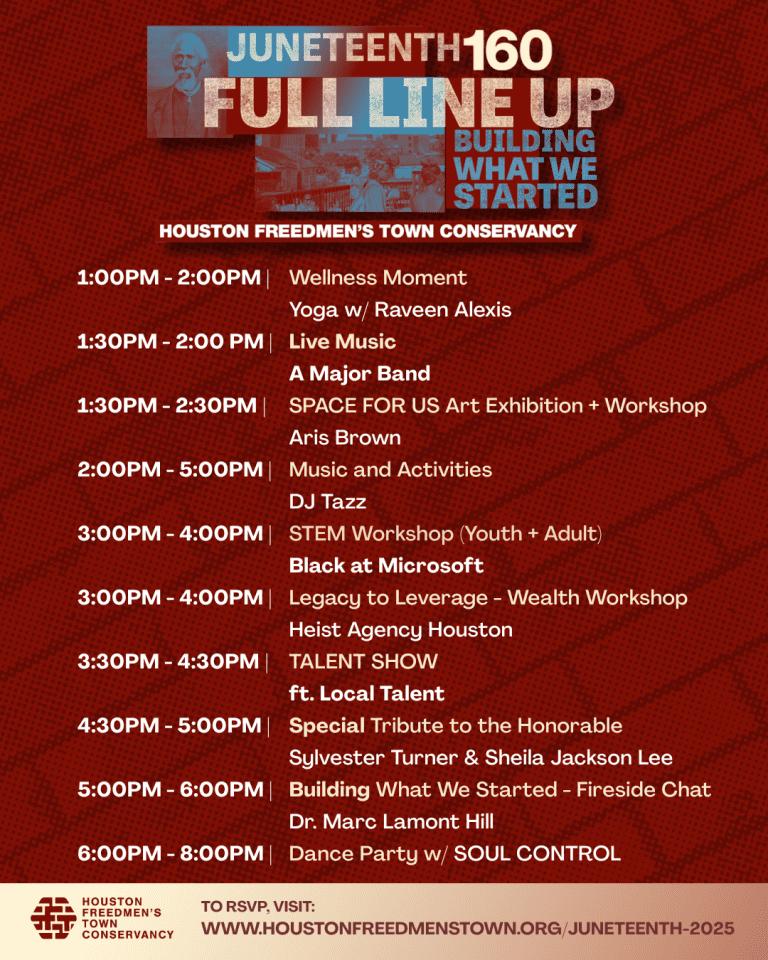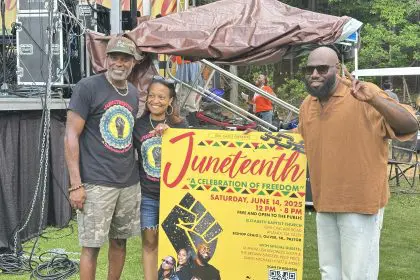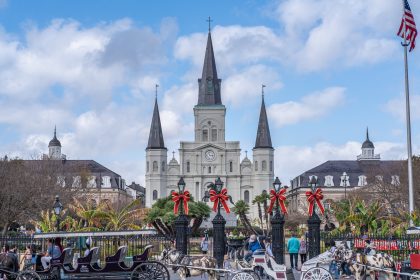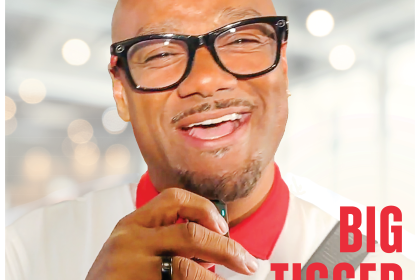
Sharon Fletcher’s journey from Houston’s Fifth Ward to leading one of the city’s most important historic preservation efforts embodies the very spirit of resilience that defines Freedmen’s Town. With 17 years of public service across Houston’s government departments and a personal connection to the community’s legacy, Fletcher now serves as executive director of the Houston Freedmen’s Town Conservancy, where she works to protect America’s largest intact post-Civil War black settlement.
Her passion for preserving black history and fostering community empowerment has positioned her as a key force in Houston’s cultural landscape. Through advocacy, education and collaborative initiatives, Fletcher ensures Freedmen’s Town’s 160-year legacy continues to inspire future generations while hosting transformative events like the upcoming Juneteenth 160 Fest.
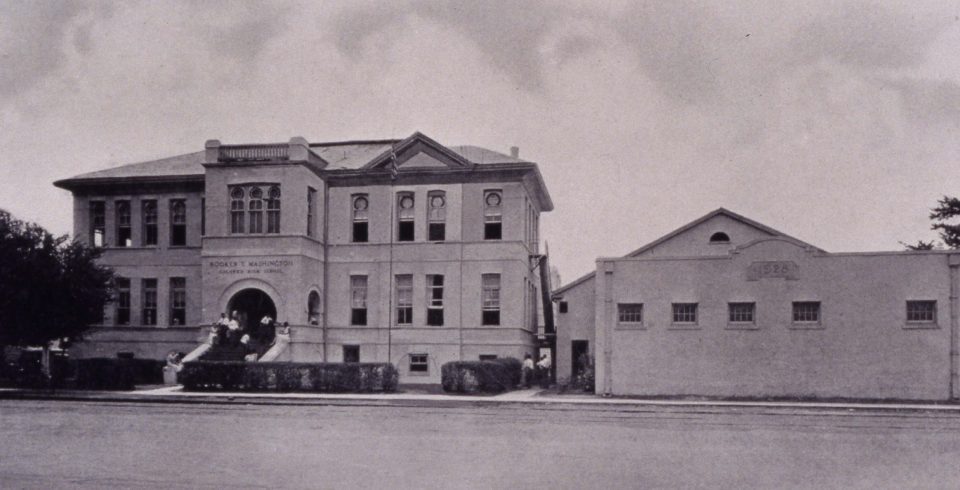
What inspired your dedication to public service and historic preservation?
I love when I get this question because it makes me think about how I grew up. I am a native Houstonian. I grew up in Trinity Gardens in Fifth Ward, and if anybody knows the city of Houston, these are the inner city communities of Houston. Being in those communities, you see the things that we don’t necessarily always have. But I saw the way people would come into the community and provide and be a source of advocacy for our communities.
I remember there was a time when we didn’t have computers at the community center at the apartment complex that I lived, and there was a gentleman who ended up partnering with the Community Center at Cleme Manor. Bringing in several computers so that our residents could have access to be able to do some of those things that were happening online, using computers, making things a little bit more efficient, but at the same time teaching people computer literacy. So me witnessing these things that happen across the board in my community, it sparked something in me to say when I get a chance to grow up and do some things, I want to be in a position to serve and be an advocate, so public service was my natural route.
After choosing public service, working for the city of Houston for about 17 years, I worked in Houston Public Works, the Houston Public Library, leading special projects and initiatives, and then I did my final rodeo in City Council, where I served as deputy chief of staff for Councilmember Abbie Kamin’s office.
Once I was doing that work, I had an opportunity throughout my city tenure to be engaged with the community of Freedmen’s Town. Over this period of 17 years, I learned quite a bit about Freedmen’s Town and learning that it was the oldest black settlement here in Houston. When I decided to transition, that opportunity dropped in my lap, and there it was, an opportunity to work in Freedmen’s Town for the Houston Freedmen’s Town Conservancy. I felt like, in that moment, I had found my purpose, work that I wanted to do specifically around African Americans and me and my family and what we represent.
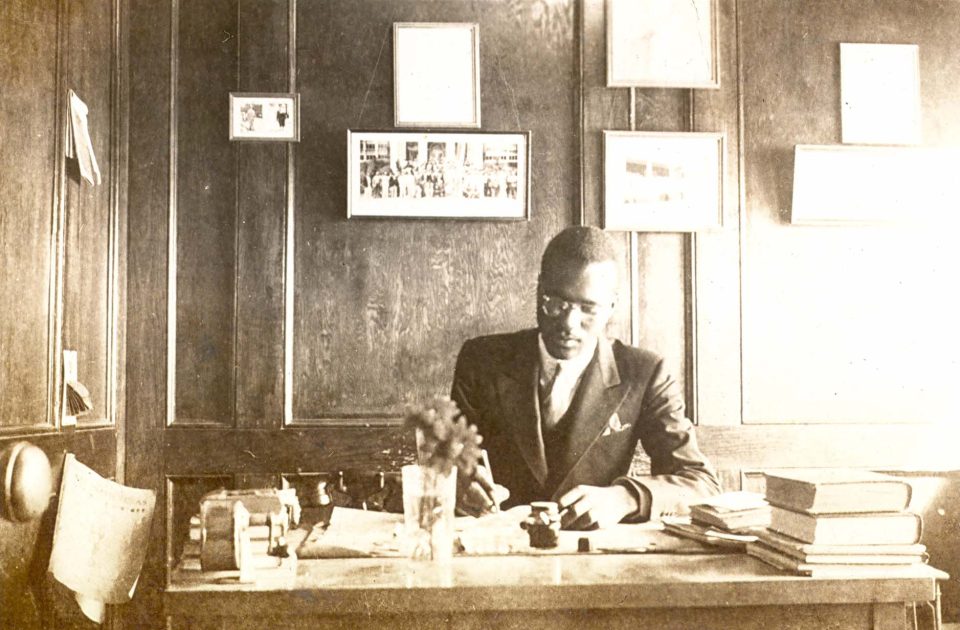
Why is Freedmen’s Town such a vital part of Houston’s cultural identity?
Freedmen’s Town is the oldest black settlement post Civil War. I always say it’s the oldest settlement not only post Civil War, but it’s like the second coming of emancipation. The initial proclamation was done January 1st, 1863, but Texas doesn’t see the effects of the Emancipation Proclamation until June 19th, 1865. So two and a half years later, you get this announcement that happens in Galveston, and you have folks who migrate from Galveston and Matagorda County and Brazoria, and even Louisiana, and migrate to Houston.
They settled on the south banks of Buffalo Bayou, which essentially, at that particular point in time, was a swampland. It was uninhabitable, but of course, us being the fierce black people that we are, we will make a way out of no way. You get this community that starts off as a tent community, and you get to this community that we get to experience today that has seen homes and churches and schools built within a community.
The African American journey from emancipation to Freedmen’s Town is a significant one, not only for Houston’s history or black history, but it’s an American history story. You have where black troops, US colored troops, are brought in to ensure that emancipation happens. It is a timeless piece of history, but it is also this place that began Black Houston and the Black Houston experience.
Before people knew about the Fifth Wards and the Third Wards, it was Freedmen’s Town. That was the Black Wall Street before people knew Black Wall Street. At one point in time, Freedmen’s Town had over 400 black businesses. It was home to 95% of the black middle class.
It had the first two-story home built by a black man, which was Jack Yates. His family was separated when this fight for slavery needed to be kept. So his wife and children were taken to Texas essentially, and he remained in Virginia for quite some time, but he re-entered slavery to be with his family. Now, if that’s not a good man, I don’t know what is a good man, to give up your freedom and re-enter slavery to connect with your family.
There’s not another place that has over 35 historical structures and assets that are left from 1865 moving into the current day of 2025. We have bricks in the streets that were laid by African Americans that lived in a community that are over 100 years old. The community of Freedmen’s Town is an important place that people should visit if they want an authentic cultural experience.
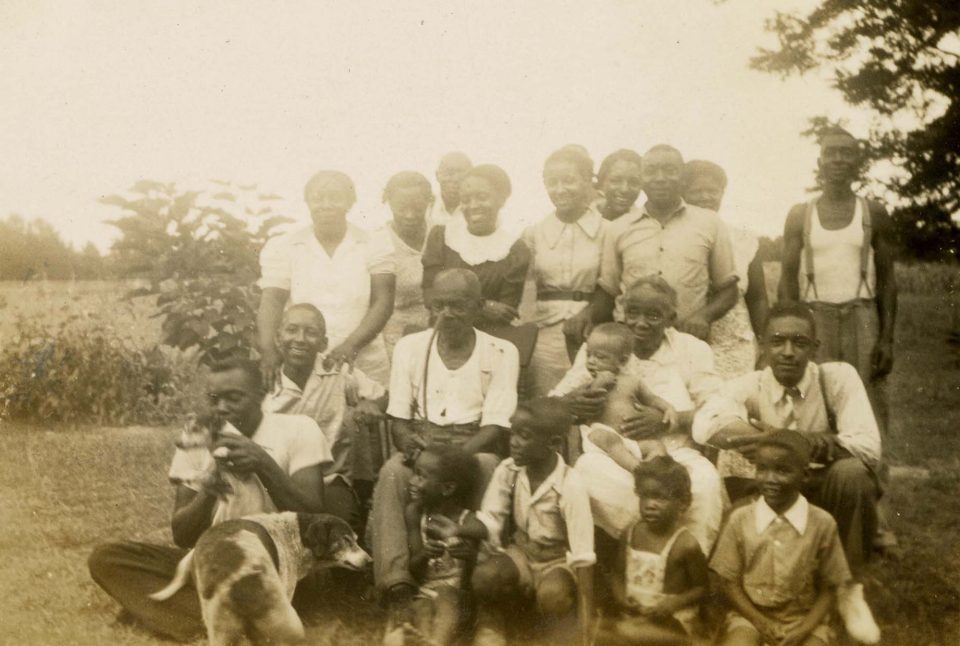
How do you define cultural preservation beyond just protecting buildings?
It’s really important not only to be able to see and feel the tangible assets in Freedmen’s Town, but it’s also a part of being able to reclaim the narrative and being able to protect the story and the stories that are within the story of Freedmen’s Town. So the work that we do as a conservancy is not just around protecting those physical assets. It’s also around amplifying and telling the story of freedom.
At our Freedmen’s Town Visitor Center is where we host activations, events and programs that allow us to take deeper dives into the story, deepen the connection of those stories and really help people make placement of Freedmen’s Town and its time and its place within history so that they understand what was happening.
I have a connection to Freedmen’s Town. I graduated from Booker T. Washington High School, which was originally in Freedmen’s Town. In 1993, I had an opportunity to celebrate the Centennial Year of Booker T. Washington. At that time I really didn’t know what it meant, but coming into this work and having a full circle moment, I understand a whole lot better about my experience at Booker T. Washington and why the teachers made us have this standard of excellence that we could not refuse and understanding why it was important for us to succeed.
Understanding the story of Freedmen’s Town and putting that with my cultural experience in high school at Booker T. Washington, which is the oldest high school for African Americans in Houston, experiencing that is one of those things that I take to heart to be able to use as I’m sharing the story of Freedmen’s Town with others and to hold place for our children who need to be able to understand the past in order to go forward in the future.
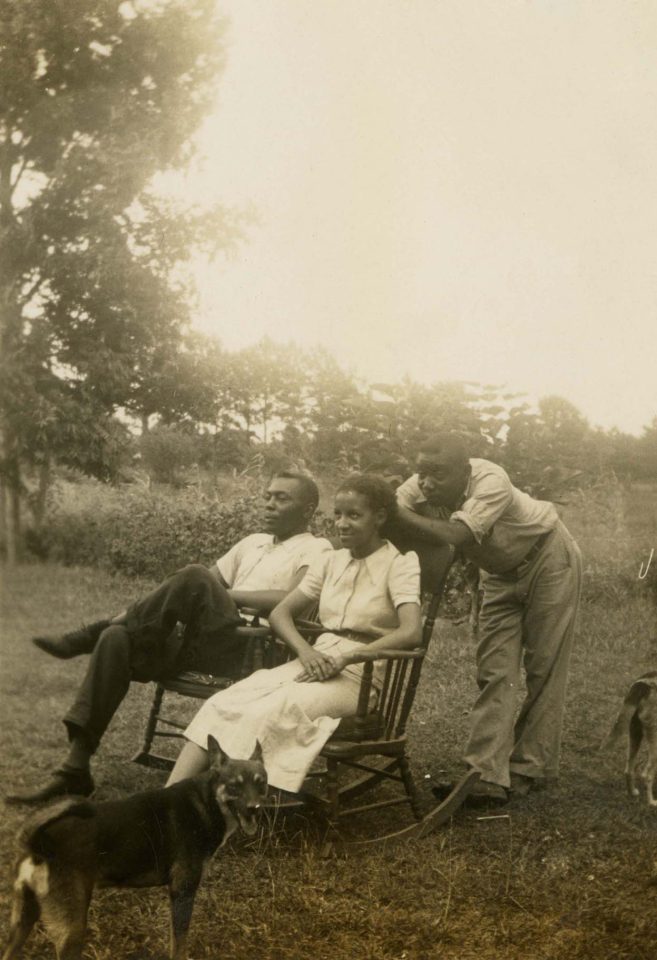
What can people expect from the Juneteenth 160 Fest?
The 160 Fest commemorates 160 years of emancipation, but it also commemorates 160 years of this community being able to grow into what we see today. Of course you’re gonna have some good food. You’re going to have some good music, and you’re going to have some good family vibes. We are definitely in the space to connect and have a good time. But we’re also in a space where we are talking about building each other up.
Our campaign “Building What We Started” is included in this Juneteenth 160 Fest. We’ll have workshops on wealth building and cultural leveraging in order for folks to make that connection towards entrepreneurship, collaboration and community that will be hosted by Heist Agency Houston. We will have “Black at Microsoft” that is teaching culture and co-pilot in the space. We have an artist by the name of Aris Brown who will be doing an exhibition workshop over her current exhibition space for us, which is a poetry exhibition that is showcasing quite a few women poets in their journeys into Freedmen’s Town from various backgrounds and spaces.
We will have a wellness moment by Miss Raveen Alexis, so we will be doing yoga in this space. We have plenty of games, activities, including dominoes and cards, because y’all know we love spades, and we love to play dominoes, but at the same time we’ll have some great food.
Most excitingly, we’re going to have a fireside chat with Dr. Marc Lamont Hill at 5 o’clock. We’re going to be talking about this centralized conversation around building what we started and how do we continue to preserve the stories like Freedmen’s Town? And then, of course, we’ll have a dance party at the end of the day that’s going to have sounds by Soul Control featuring DJ Elevated, who’s a native Houstonian.
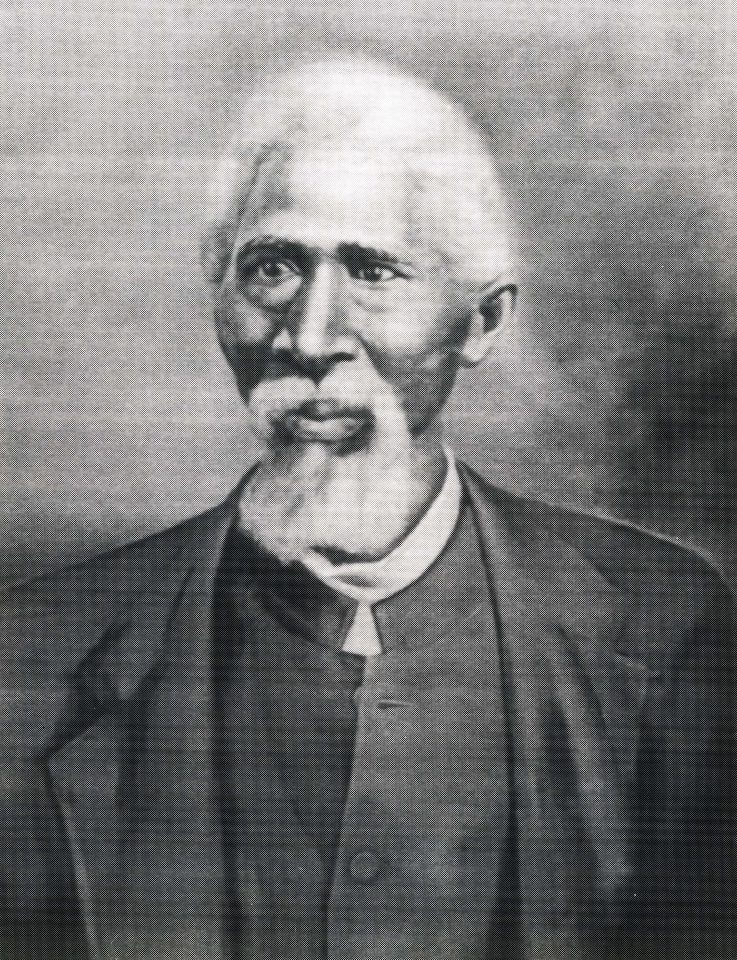
Tell us about “Our Road Home” at historic Bethel Baptist Church.
“Our Road Home” is essentially a dance, rhythmic expression type of performance, and essentially, it’s built on how we connected and communicated with each other through dance and movement and step. Jakari Sherman, who is the founder and creative director of [Jk]creativ, this is his first show back at home. He’s done some pieces in Washington, DC over Jacob Lawrence. He’s done some work with Step Afrika! as well, but this will be his first piece featured in Houston at the Bethel Historic Church site, which is a historical church to the community of Freedmen’s Town, and it’s been reimagined for the purposes of gathering in the community of Freedmen’s Town.
People can expect to learn more about the journey of freedom through dance and step and sound as it relates to our communities through that presentation. Folks can get their tickets at houstonfreedmenstown.org. The tickets are only $25, and those $25 tickets continue to help us be able to do this work in the community.
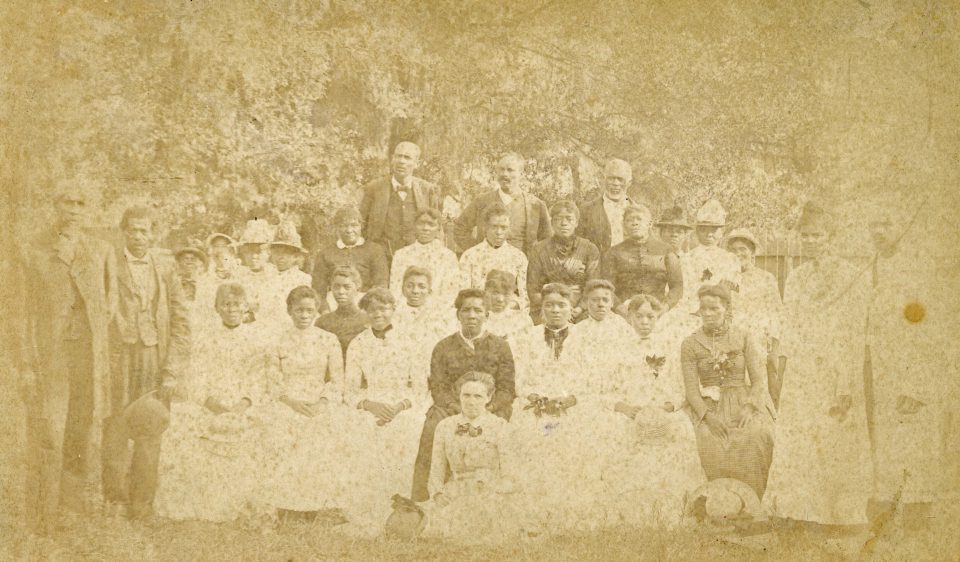
What challenges do you face in preserving Freedmen’s Town?
Just getting people to know more about Freedmen’s Town. That awareness is part of the challenging part, being visible so that people can see and have tangible experiences that they find meaningful and important and impactful.
Of course, you always have to go through the maze of getting local government and state government and federal government to recognize us at such places, but we’ve been privileged over the last few years with doing that work of getting the City of Houston local government on board with the work that we’re doing in terms of not just heritage tourism, but also as it relates to preserving the physical assets in the community, working alongside of community who is brand new into the neighborhood of Freedmen’s Town.
Continuing, of course, to do the funding part, because writing the grants, writing the proposals, ensuring that you have staff and capacity to be able to run a space and be able to provide programming and events, those have been the challenges. But we are experiencing some great support from our local philanthropic groups in Houston and also national philanthropic groups as well.
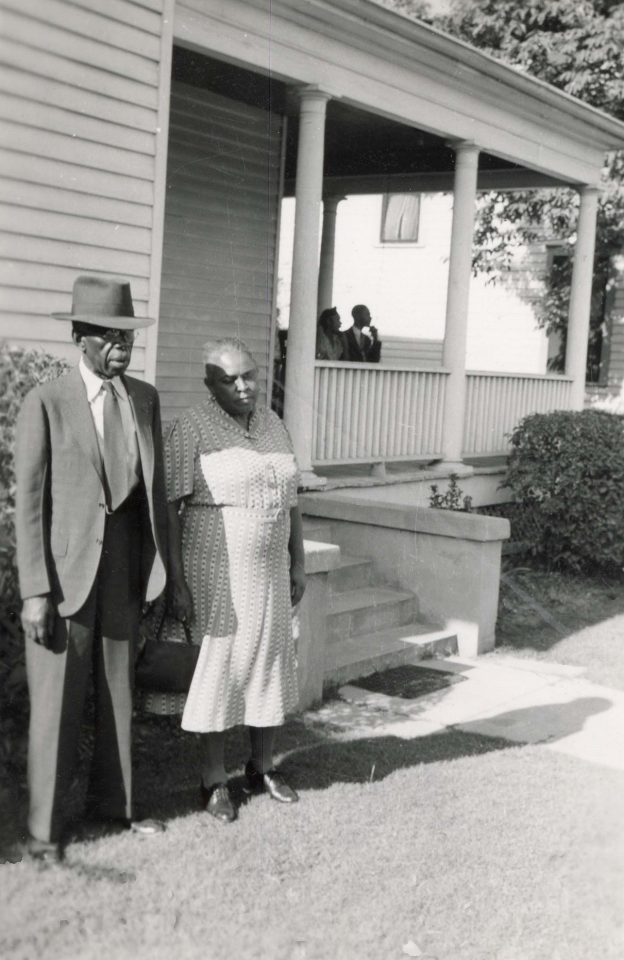
What victories are you most proud of?
“Rebirth in Action” is a project that we are currently working on. We have been able to get through a design concept report which included the city. One of our partners in this, alongside of the city of the Contemporary Arts Museum Houston and Theaster Gates, who’s a world renowned artist as well, but working through this “Rebirth in Action” project, we were initially awarded a $1.25 million grant through Mellon and through NEA in order to do this work.
Being able to completely preserve those historical brick streets that we have left as part of this project is an amazing win for us. Including being able to do some additional work with the restoration of 3 houses, a pavilion to house the historic bricks temporarily while the capital improvement project is worked on, and then, of course, that space later becomes a cultural hub for the community for events.
We opened up the Freedmen’s Town Visitor Center just about a year and maybe 20 something days ago, and we’ve already seen great traction coming in. We’ve hosted the likes of Texas Southern University, University of Houston, Rice University. We have direct partnerships with a lot of these higher education institutions. We have quite a few corporate entities that are supporting and coming back and asking us to do presentations to their folks.
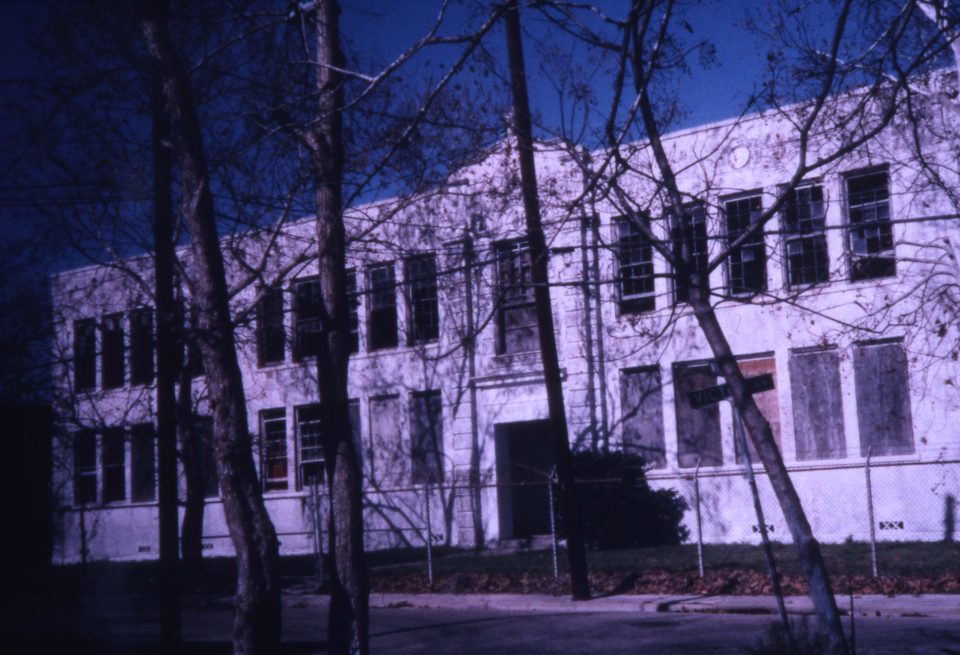
What’s your dream for Freedmen’s Town in the next five years?
My dream for Freedmen’s Town over the next 5 years, literally being able to see the restoration of the brick street that we have left, Andrews and Wilson Street, being able to see the activation of the pavilion that we are erecting there, and folks coming and just enjoying concerts and connecting within the community of Freedmen’s Town, being able to fully restore 2 houses that we’re working on, that we’ve saved from demolition.
We currently have about $350,000 left to raise. We’ve raised over $600,000 for those homes, but we’re wanting people to stay permanently connected to the community of Freedmen’s Town for those who have a legacy and have roots there. I imagine those 2 houses being done and being in that permanent affordable housing space.
I imagine these 10 historical homes down the street from us being completely revitalized for incubators, for businesses and local shops and artists residency. In 5 years, I see a revitalization moment that happens in Freedmen’s Town where people can come, live, work and play and enjoy a good cultural experience along with it.
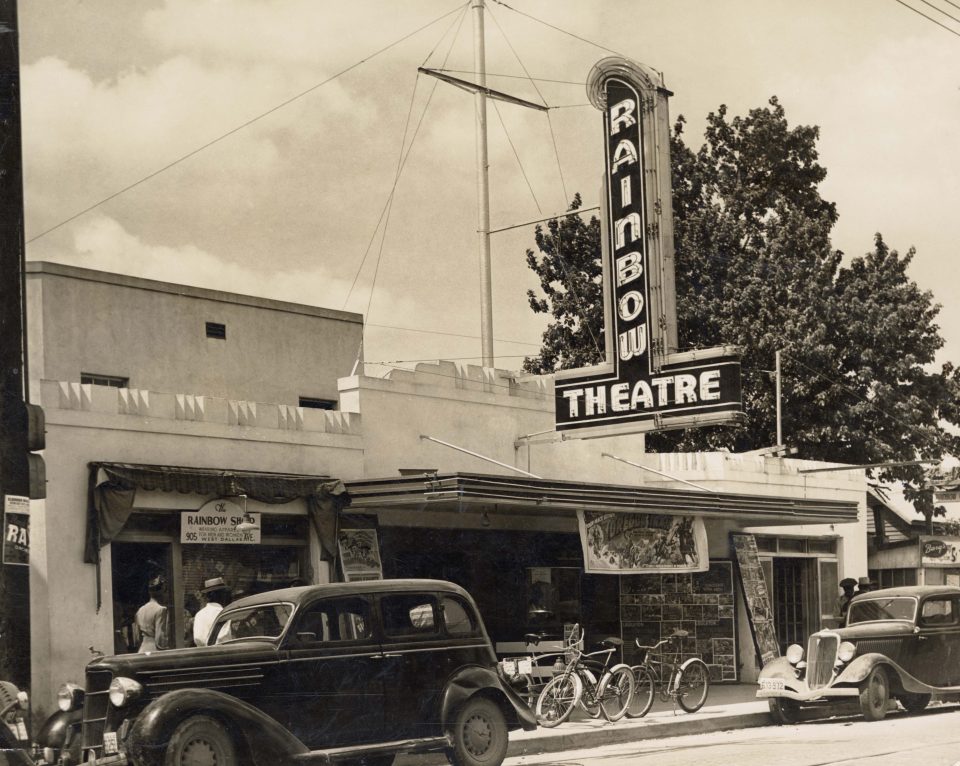
How can people get involved and support the conservancy?
The Conservancy can be found at www.houstonfreedmenstown.org. You also can find us on Instagram, Facebook, TikTok, YouTube. As a matter of fact, we’re launching our “Building What We Started” docuseries on YouTube. So taking a look at the businesses that we’ve been able to partner with to be able to tell their stories of how they’ve gotten started.
We want to continue to build on the 5 pillars of Freedmen’s Town, which is family, education, faith, entrepreneurship and community. For folks who want to just get in there with us, don’t hesitate to come and volunteer. You can also donate. Many of these projects that I just mentioned to you are on our website for you to actively be able to give to. Every single dollar is used for the preservation of this community, whether it be through the tangible assets or the storytelling.
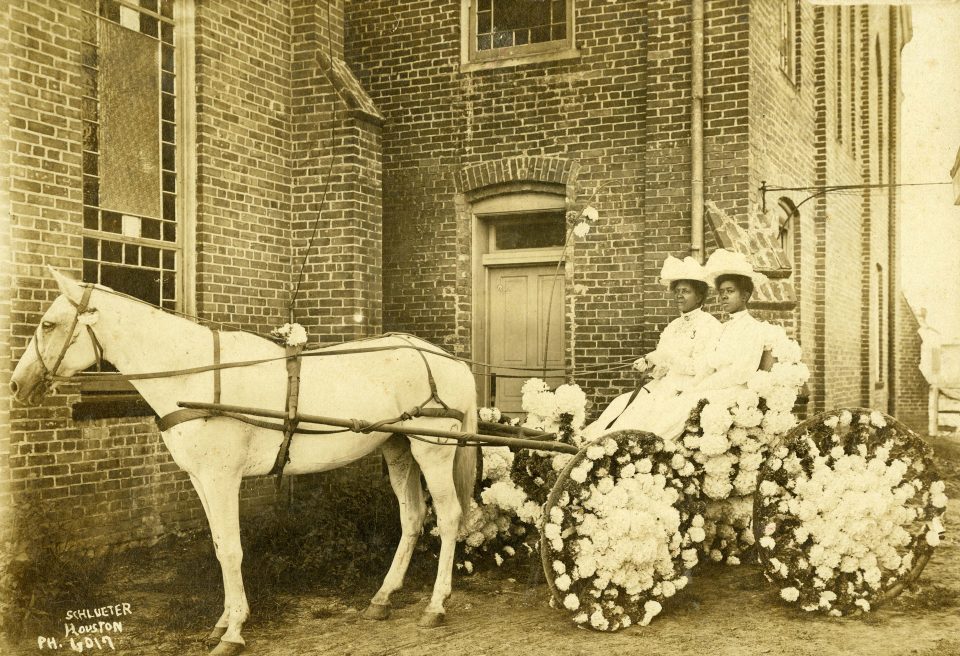
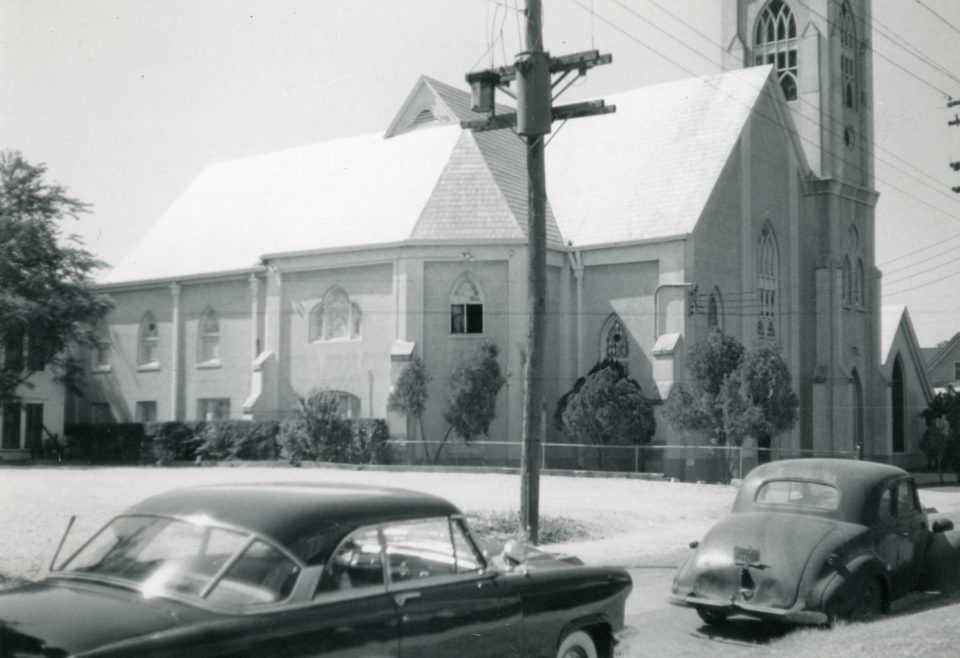
Event Information
Juneteenth 160 Fest June 19th, 2025, 1-8 p.m. Houston Freedmen’s Town Conservancy Visitor Center 1204 Victor St, Houston, TX Free general admission, $35 ticketed fireside chat with Dr. Marc Lamont Hill
Our Road Home June 20th, 2025, 7-8:30 p.m. Historic Bethel Baptist Church 801 Andrews St, Houston, TX $25 tickets
For more information and tickets, visit houstonfreedmenstown.org or follow @HoustonFreedmensTown on social media.
